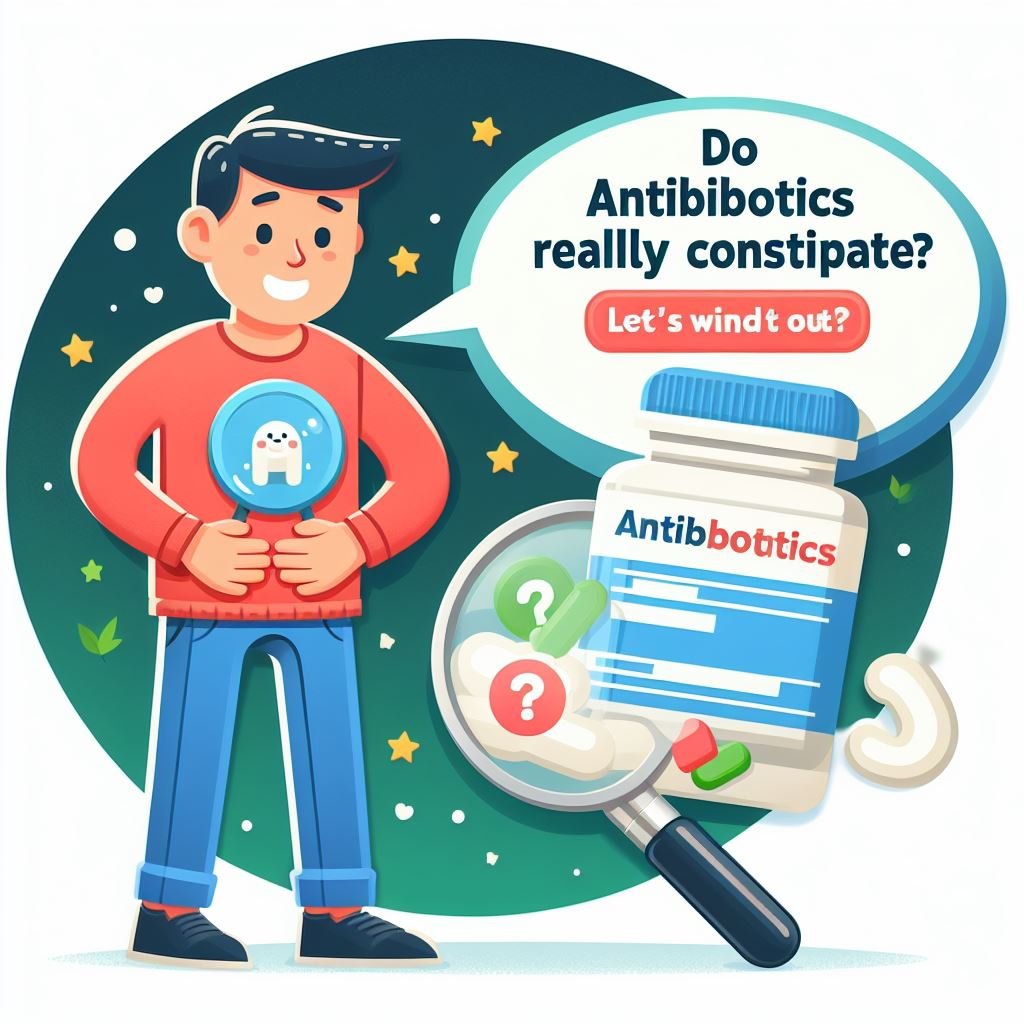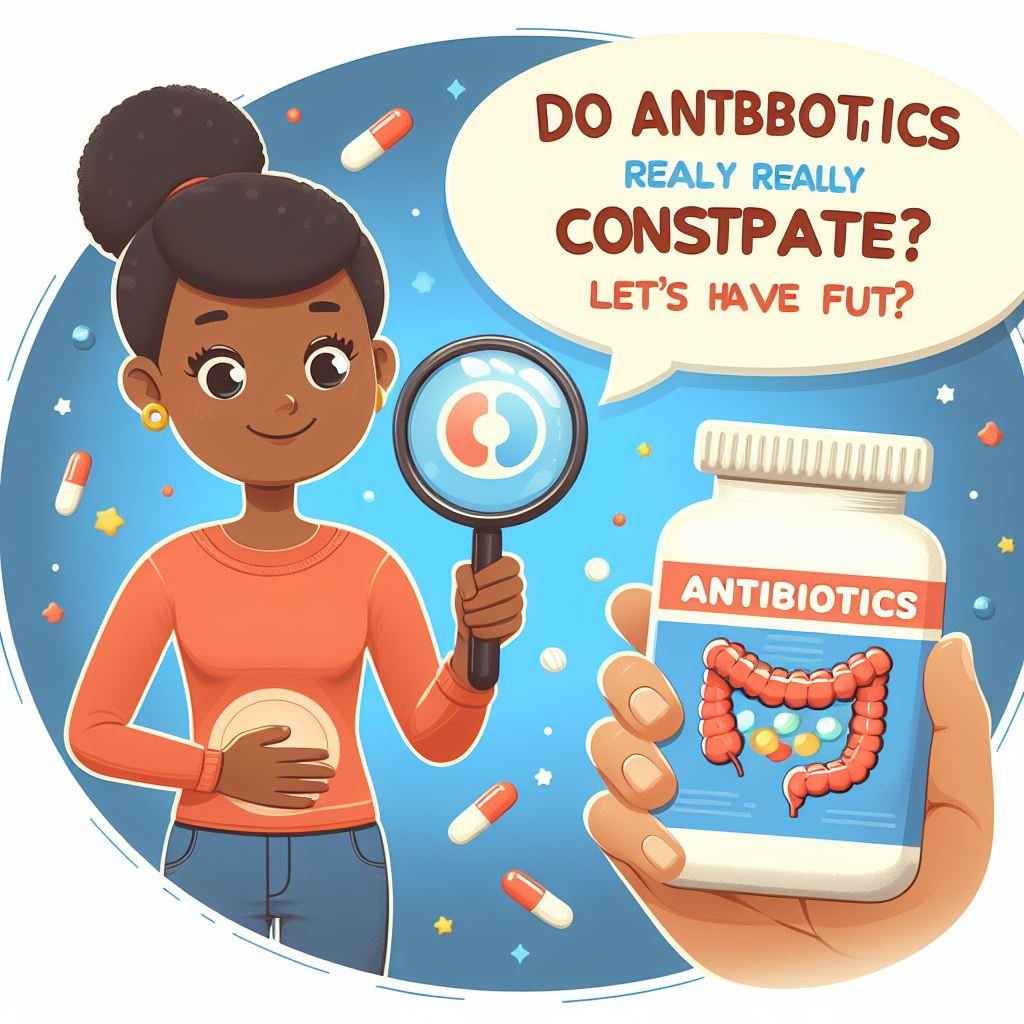Do antibiotics constipate you?
Antibiotics are commonly prescribed as a type of therapeutic pill intended to kill bacterial organisms. They are efficient at destroying harmful bacteria, but sometimes they may end up having some negative impacts recognized as well. One of the most asked questions out there is, “Do antibiotics make you constipated?” The answer is yes; you are capable of excreting more difficult feces while you are taking a bacterial. The following article will explain why antibiotics might cause constipation, what you can do if you have the same, how to prevent this discomfort, and what to do if the symptoms develop.

The correlation between antibiotic treatment and constipation.
Do antibiotics constipate you? In terms of the way imibiotics function and the consequences they bring to the gut microbiome, this is the reason they can cause constipation. Medicines called antibiotics are used to prevent or fight bacterial infections that are potentially harmful. However, their work is very useful in building up an ecosystem inside the gastrointestinal tract that is called the gut microbiome.
In the gastrointestinal tract, a unique microbiome is produced to digest food, extract nutrients, and prevent abnormal colon motions. Disturbance of the coordination of antibiotics with the microbiome of the gut happens, due to which the stool gut environment is put out of control and stools become extremely difficult to evacuate. In the former, abdominal pain, bloating, gas, and occasional bouts of diarrhea are common symptoms. In the latter scenario, constipation, a condition when bowel movements occur less often and inappropriately with no chance of being complete, leads to the misery of suffering from the condition.
Symptoms of antibiotic-induced constipation
Antibiotic therapy may cause hard stools and difficulty with defecation. If you encounter this condition, you need to know how to recognize the most common signs and symptoms. These include:
- irregular bowel movements of such magnitude (less than three times a week).
- feels like stones or is constipated; stains are difficult to pass, or they are covered with mucus.
- I can feel my stomach swollen or stuffed from below sometimes.
- A feeling of strain or discomfort during bowel movements may increase the risk of rectal prolapse.
It must be pointed out that just because a person has taken antibiotics, the likelihood of their occurrence is not leaked by this. The chance and possible gloominess of constipation depend on the kind of antibiotic, the dose, individual peculiarities of diet, and the overall well-being of the gut, among others.

Eliminating and Alleviating Antibiotic-Inspired Constipation
This isn’t something you should do while sitting down. Should you find yourself asking, “Do antibiotic medications cause constipation?” and facing constipation while on these medications, then you have several steps through which you can manage or prevent this side effect.
Increase Fiber Intake: One way to ensure you have regular bowel movements is by consuming more fiber-rich foods like fruits, vegetables, whole grains, and legumes, which can then add bulk to the stool and facilitate more movements. You can bookshelf this effect by starting smoothly with your fiber and drinking enough water.
Consider over-the-counter laxatives: If the symptoms are still there after trying a new diet and more exercise, you may need to use OTC laxatives or stool softeners. Thus, you should talk to your healthcare provider beforehand if you want to use laxatives, as they may not be a good choice if they interact with your medicine or an existing condition of yours.
Conclusions about Do antibiotics constipate you
Do antibiotics constipate you? Well, antibiotics cannot go without emphasizing that one of their side effects is constipation, especially when you are taking them for a longer time. The gut microbiome disruption caused by the intake of antibiotics can be responsible for creating a new environment in the gut that will not allow the body to produce stools as it normally should.
Though concomitant dyspepsias brought on by the medicines include the discomfort of poor fecal propulsion or obstinate bowel movements, there are steps you can implement to manage and prevent the problem of constipation. Drinking more water and eating fruits and veggies that are rich in fiber is the first step towards dealing with constipation, followed by regular exercise and the addition of probiotics or laxatives.

FAQS about Do antibiotics constipate you
Does anybody feel constipated while taking antibiotics or not?
Not necessarily. The risk and severity of constipation for each patient can be different if one considers the type of antibiotic, dosage, and common factors like diet or general gut health.
To what extent is the prolonged use of antibiotics related to constipation that causes you to be uncomfortable?
While some people may experience constipation only a few days into starting an antibiotic, others may experience this after a week or so as well, as the medication has already affected their gut microbiome.
How can he avert or reduce the presence of these drugs?
Step up fiber and fluid intake, engage in regular exercise, ask your physician about probiotics or OTC laxatives, and intensify your antibiotic regimen if required.
As a side effect, has constipation emerged from antibiotics?
Stoolward for constipation from antibiotics is normal, and once the course is completed, the dish resolves. However, it may have some complications if it is too severe or lasts for a long time, and in this case, immediate medical attention should be taken into consideration.
How long has antibiotic-induced constipation addressed this issue?
It will typically run its course within two or three days to one week after the use of antibiotics, as the gut microbiome starts to grow again.
Can the children be so affected as to experience constipation from the antibiotics?
Indeed, the children may suffer from this problem and take antibiotics for respiratory infections, and the stool may be very hard to pass, especially when the antibiotics are being used intravenously. A good way would be to increase the ratio of liquids and fiber in their diet, and if constipation doesn’t resolve, a consultation with the pediatrician is a good idea.
Do our guts harbor superheroes who are capable of duplicating this unwanted side effect?
Yes, probiotics can repair the flora of good bacteria in the intestine and can aid in preventing or reducing the constipation brought on by antibiotics.